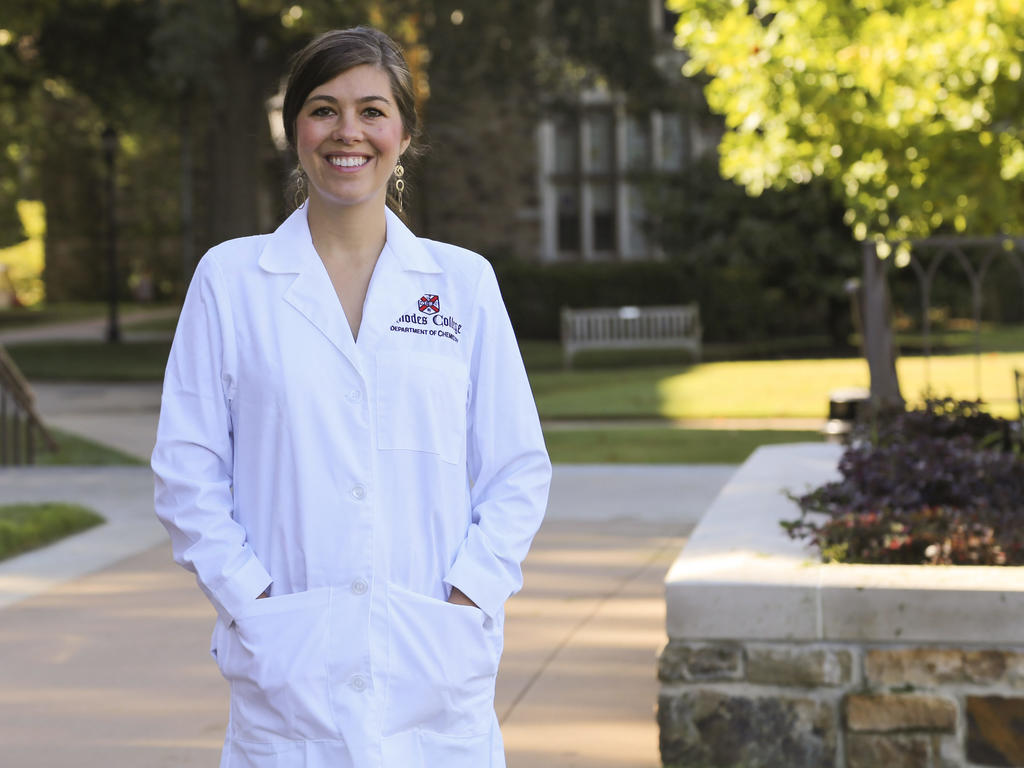Dr. Larryn Peterson, assistant professor of chemistry at Rhodes College, has won a National Science Foundation (NSF) grant with Dr. Keri Colabroy, associate professor of chemistry at Muhlenberg College in Allentown, PA. This competitive award supports their collaborative investigation of an unstudied family of enzymes that could be used in the production of biofuels derived from plants.
Keri Colabroy was awarded $180,000 as principal investigator (PI) and Peterson awarded $114,000 as the co-PI. Dispersed over three years, the combined grant includes funds for undergraduate students working in the faculty’s research labs each semester, additional summer research, and travel to conferences. “We also wrote in opportunities where I can send students to Muhlenberg so that they can see one side of a project and then Prof. Colabroy can send students to Rhodes to see the other side,” says Peterson.
In their work titled “Kinetic Study and Mechanism of L-DOPA Dioxygenase, a New Type of Vicinal-Oxygen-Chelate (VOC) Dioxygenase,” Peterson and Colabroy will examine a class of enzymes called dioxygenases that help speed up a difficult chemical reaction to break down molecules like those found in the woody tissue of plants. The complex relationship between structure and function of these enzymes is not well understood, according to Peterson. This lack of understanding limits the use of enzymes to make new natural products and convert plant material into biofuels.
The grant also will fund a cutting-edge hydrogenation reactor that will allow the professors and their students to conduct some chemical reactions and transformations they have not be able to do in the past due to risks of handling hydrogen cylinders. The new equipment reduces that risk, according to Peterson. “Most teaching institutions don’t have the funding to purchase this type of equipment, and I’m excited about getting it. It is something that the chemical industry would use.”
Part of Peterson and Colabroy’s project will be integrated into coursework at each institution to give additional undergraduates the opportunity to conduct original research. “Rhodes faculty have a really strong investment in training future scientists,” says Peterson. “A large population of our students who do science research are able to get co-authorships on papers and are presenters at national and international conferences. With this grant, we can also help to increase diversity in the STEM fields. I will be recruiting soon for students to work on the project.”
Peterson has been a member of the Rhodes faculty since 2011. Research in the Peterson lab uses an interdisciplinary approach to understand important biological processes by utilizing tools from synthetic organic chemistry, chemical biology, biochemistry and molecular biology. Students Peterson has mentored have received National Science Foundation Graduate Fellowships, published in peer-reviewed journals, and received the prestigious Goldwater Scholarships presented to highly qualified college students who intend to pursue careers in science, mathematics, and engineering.
